Lucas Fowler and Chynna Deese: The forgotten faces in Canadian 'fugitives' story
- Published
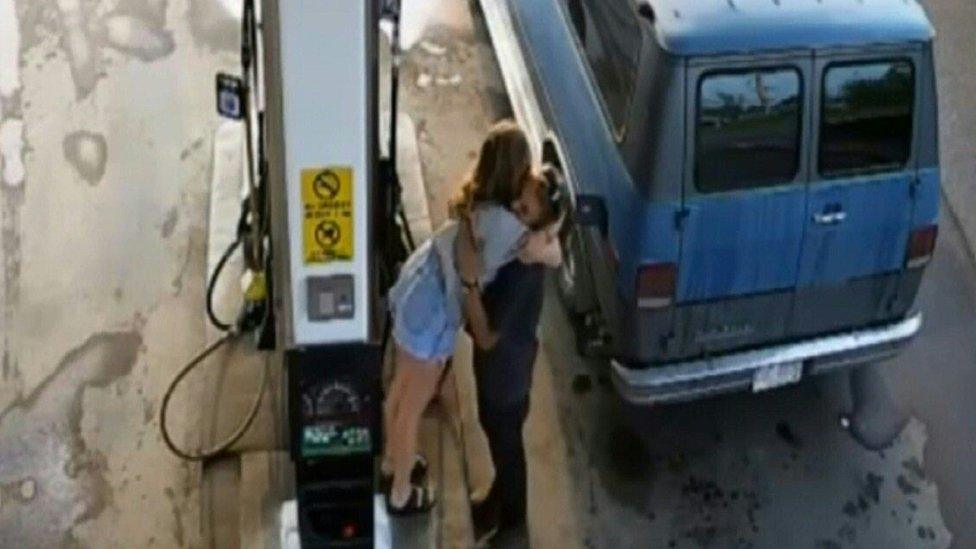
The last image of them alive was a loving embrace
For nearly three weeks this summer, a nationwide manhunt for two young fugitives suspected of three murders in northern British Columbia gripped both Canada and the rest of the world. But far less was written about the victims, whose families are still searching for answers.
On the evening of 13 July, Lucas Fowler and Chynna Deese pull into a petrol station in Fort Nelson, British Columbia.
They are driving the 1986 blue Chevrolet van that Fowler had patiently fixed up for their road trip in the western Canadian province.
A security camera captures the couple sharing a quick, loving embrace before they pay and pull away.
Thirty-six hours later, their bodies are found on the roadside of the Alaska Highway about 20 km south of Liard Hot Springs - a popular stop for travellers in northern British Columbia.
Fowler, a 23-year-old Australian and Deese, 24, his American girlfriend, had been shot.
The murder of the young, carefree couple proved to be just the tragic beginning to a series of events watched around the world.

Lucas Fowler was the fourth child in the Fowler family and grew up loving adventure and the outdoors, riding dirt bikes and camping.
He also developed a passion for travel, one that took him on a two-year backpacking trip around the world and to Croatia, where he met Chynna Deese.
The North Carolinian was also the youngest of a large family and shared Fowler's love of adventure, his kindness and contagious smile.
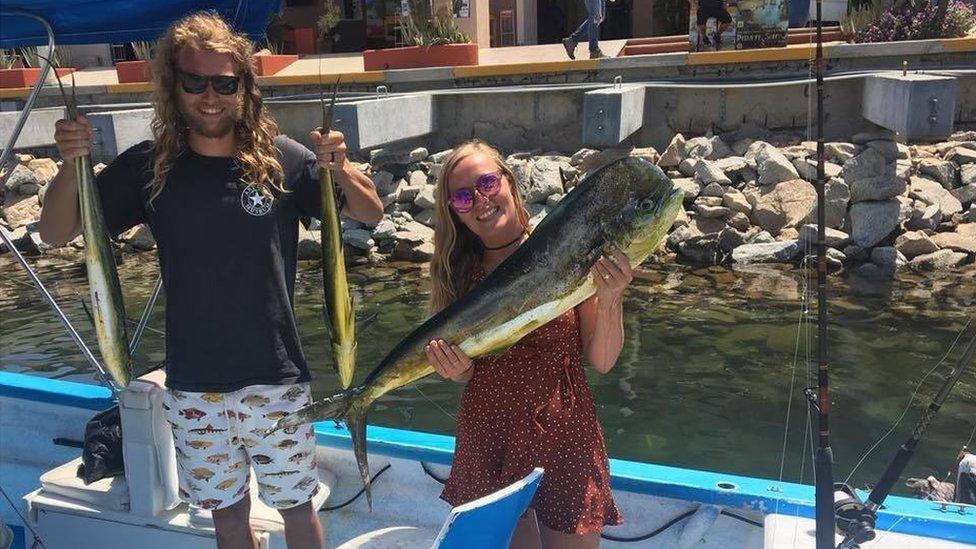
Photos of Lucas Fowler and Chynna Deese show an adventurous couple
"They were full of happiness and joy, just being together," said Fowler's father, Stephen, at his funeral earlier this month.
The couple spent Christmas together in the US before Fowler left to work on a ranch in a remote part of British Columbia.
At the ranch, he would often be found spending hours on the phone with Deese on his downtime, and she later joined him there for a week before they left to explore the country in their blue van.
Stephen Fowler, a senior detective with the New South Wales police force, said the family was happy the two had found each other and spent their time together "just milking every last drop of fun out of life".
Fowler and Deese are believed to have been killed on 14 or 15 July.
Their death shocked Canadians and their home communities in Australia and the US.
Fowler's distraught parents flew to Canada to bring their son home. The New South Wales police offered two detectives as a liaison with their Canadian counterparts.
Stephen Fowler told journalists that despite his years as a police officer, nothing could have prepared him or his family for the weight of this tragedy.
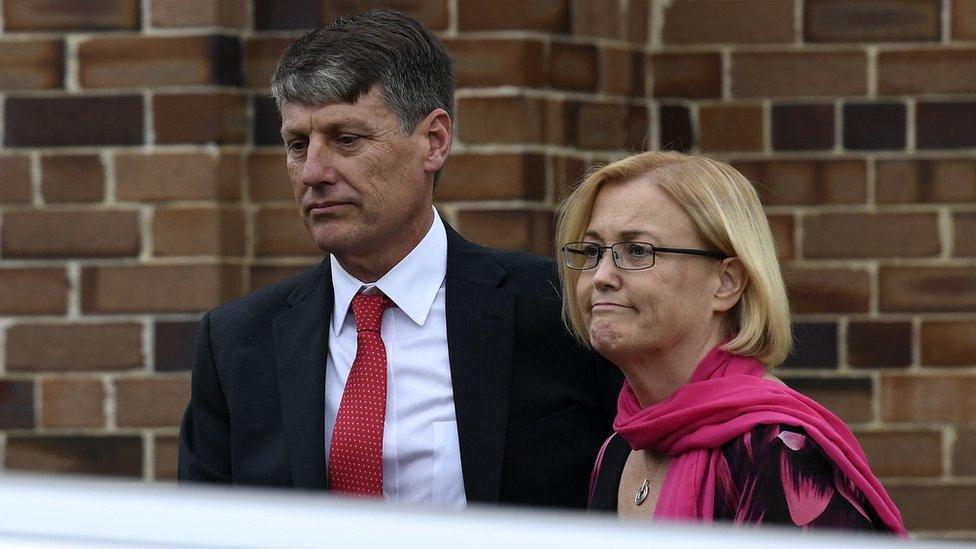
Stephen (L) and Shaunagh Fowler, the parents of Lucas
In Australia, the media followed all the sudden twists and turns of the unfolding case, immersed in the mysterious death of a native son and his American girlfriend a world away.
Their murders also resonated south of the Canadian border, where another family was left heartbroken and in shock.
"You had big beautiful life plans, and they were cut short," one of Deese's sisters said on Facebook.
"Instead of watching you enjoy your thriving life I can only carry your legacy in mine, and encourage others to do the same."

As the Fowler and Deese family were grappling with the distressing news, another family, this time in Canada, was about to face what was, in their words, "unthinkable grief" at the loss of a husband and father.
On 19 July, an abandoned, burning pick-up truck found near Dease Lake, British Columbia, led police to an unidentified body nearby - a third life cut short on the side of a remote Canadian highway.
That led to a public plea by police to be on the lookout for the drivers of the burning vehicle - two teenagers from Port Alberni, a town on Vancouver Island, believed missing and in danger from a mysterious killer.
And then on 23 July a bombshell announcement by the Royal Canadian Mounted Police (RCMP) - those two teenagers, Kam McLeod, 19, and Bryer Schmegelsky, 18, were not missing but the suspected killers and now on the run.
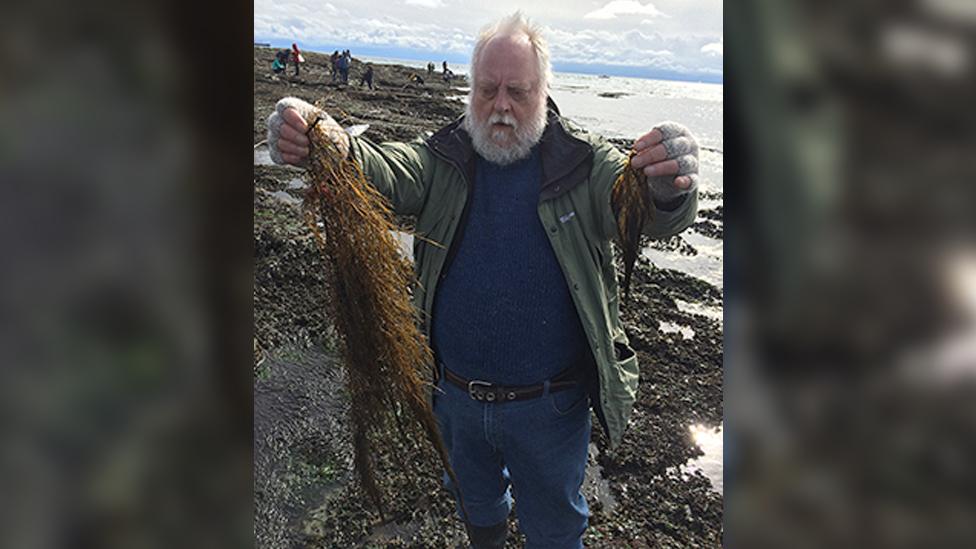
Leonard Dyck studied seaweed and had "a passion for bizarre and beautiful organisms"
The next day police said they had identified the third victim as Leonard Dyck, 64, and were charging the two with second-degree murder in his death.
But the two young men had left the province, driving Dyck's grey Toyota Rav 4 some 3,000km (1,864 miles) east across Canada - approximately the distance from London to Moscow - before leaving it burned and abandoned in northern Manitoba.
Dyck, a botany professor, had a "somewhat gruff exterior" but could win over students with his dry wit, curiosity about the natural world and "passion for learning about bizarre and beautiful organisms that few people ever get to see".
The photo police released of Dyck shows a man with a bushy white beard, kind eyes and a slight mischievous smile.
"I will miss Len's laugh, which often followed some wry comment," said his University of British Columbia colleague, Patrick Martone.
Police have revealed little about Dyck's death, hence little is known about how he was killed and how he came into contact with McLeod and Schmegelsky.

The nationwide manhunt for McLeod and Schmegelsky ended earlier this month, when police announced they had found the bodies of the two young men in the northern Manitoba wilderness.
A post-mortem found they had died by apparent suicide.
RCMP in British Columbia say they will wrap up the three murder investigations, although the two were their lone suspects.
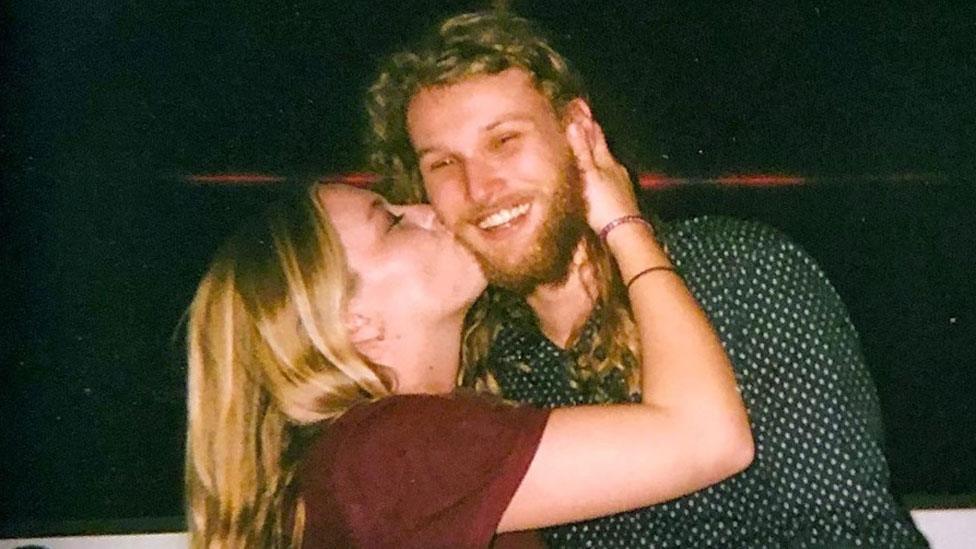
"It's going to be extremely difficult for us to ascertain definitively what the motive was," said RCMP Assistant Commissioner Kevin Hackett.
They have brought in behavioural experts who can help analyse the crime and build personality profiles of the offenders.
Police have promised to update them but the families may never have all the answers.
"It is just hard to accept that such good people can be killed for whatever reason," Deese's brother Stetson told Australia's Nine Network, external.
"We do not know why and more and more may be discovered - but I don't think we will ever truly know why."
- Published31 July 2019
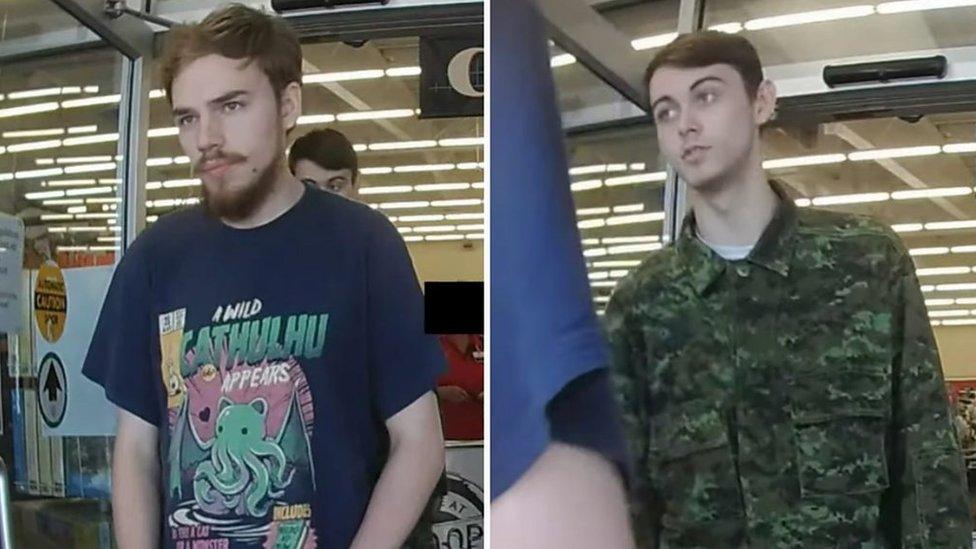
- Published12 August 2019
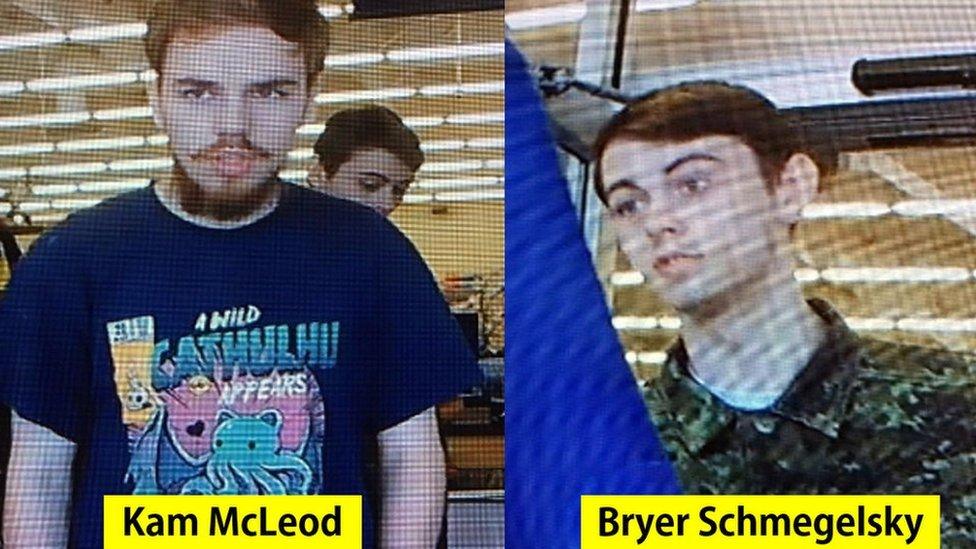
- Published8 August 2019
